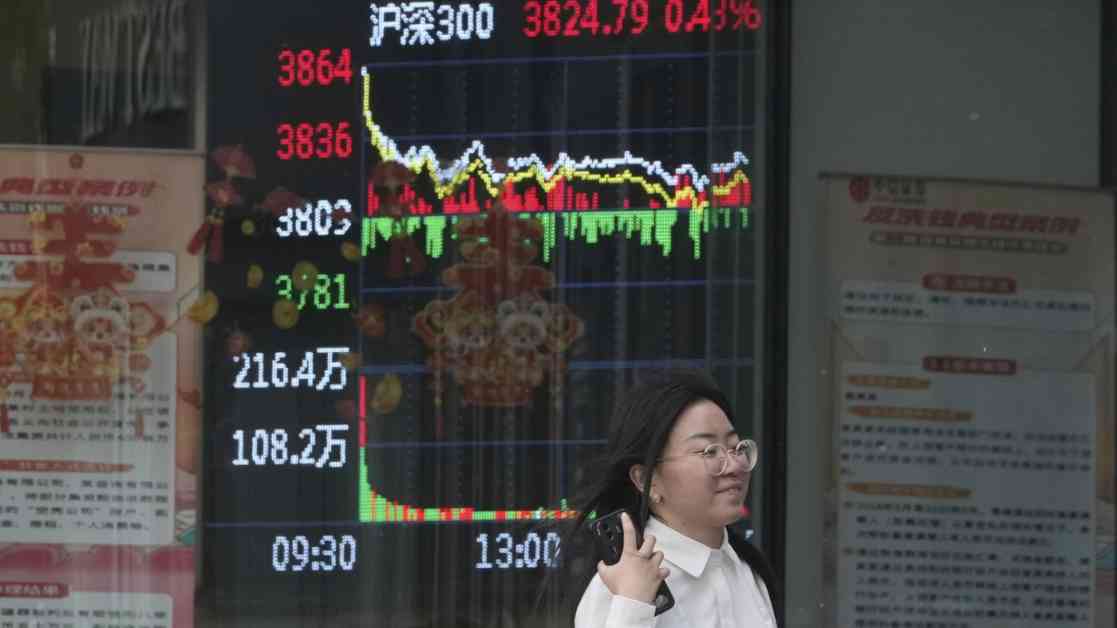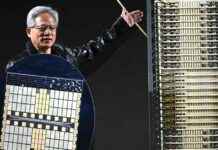A woman was just passing by a stock index at a brokerage in Beijing on Wednesday. President Trump suggested that U.S. levies on Chinese goods could drop to 80% ahead of trade negotiations in Switzerland this weekend. He mentioned Treasury Secretary Scott Bessent in his social media post. This will mark the first high-level trade talks between the U.S. and China since Trump returned to the White House in January. Both countries are facing high customs levies and tensions are running high. Analysts and officials from both sides caution that an immediate trade deal may not come out of this weekend’s talks but hope to de-escalate tough trade rhetoric.
China’s Commerce Ministry spokesperson, He Yadong, warned about coercion and blackmail under the guise of talks. China has demanded a rollback of U.S. tariffs, but the White House has ruled it out. Trump hinted at a possible decrease in U.S. levies on Chinese goods after the talks. Chinese imports to the U.S. face up to 245% in cumulative levies, while American goods heading to China have a 125% import tax.
The talks in Switzerland will involve Treasury Secretary Bessent, U.S. Trade Representative Jamieson Greer, and Vice Premier He Lifeng, a top Chinese economic official. China has maintained a tough stance, vowing to “fight to the end” this time around. Beijing insists that the U.S. side must make the first move, despite Trump’s claims that China reached out first to arrange the meeting.
“The U.S. side is actually more eager than China to ease the current trend,” says Wu Xinbo, director at the Center for American Studies at Fudan University in Shanghai. The talks will allow both countries to outline their expectations. The U.S. has not been clear on the goals of its tariffs on China. Chinese exporters are already feeling the impact of American tariffs but have increased exports to other countries to offset the losses.
China has been preparing for an economic stand-off with the U.S. by strengthening its supply chains and reducing dependence on foreign countries. Recent monetary changes in China aim to cushion the economy from the effects of U.S. tariffs. Dinny McMahon, director of market research at Trivium, believes this is just the beginning of government support.
China has been ramping up its trade diplomacy, especially in Southeast Asia, to secure trade deals without the U.S. by positioning itself as a strong advocate of global free trade. Aowen Cao contributed to this report from Beijing.



















